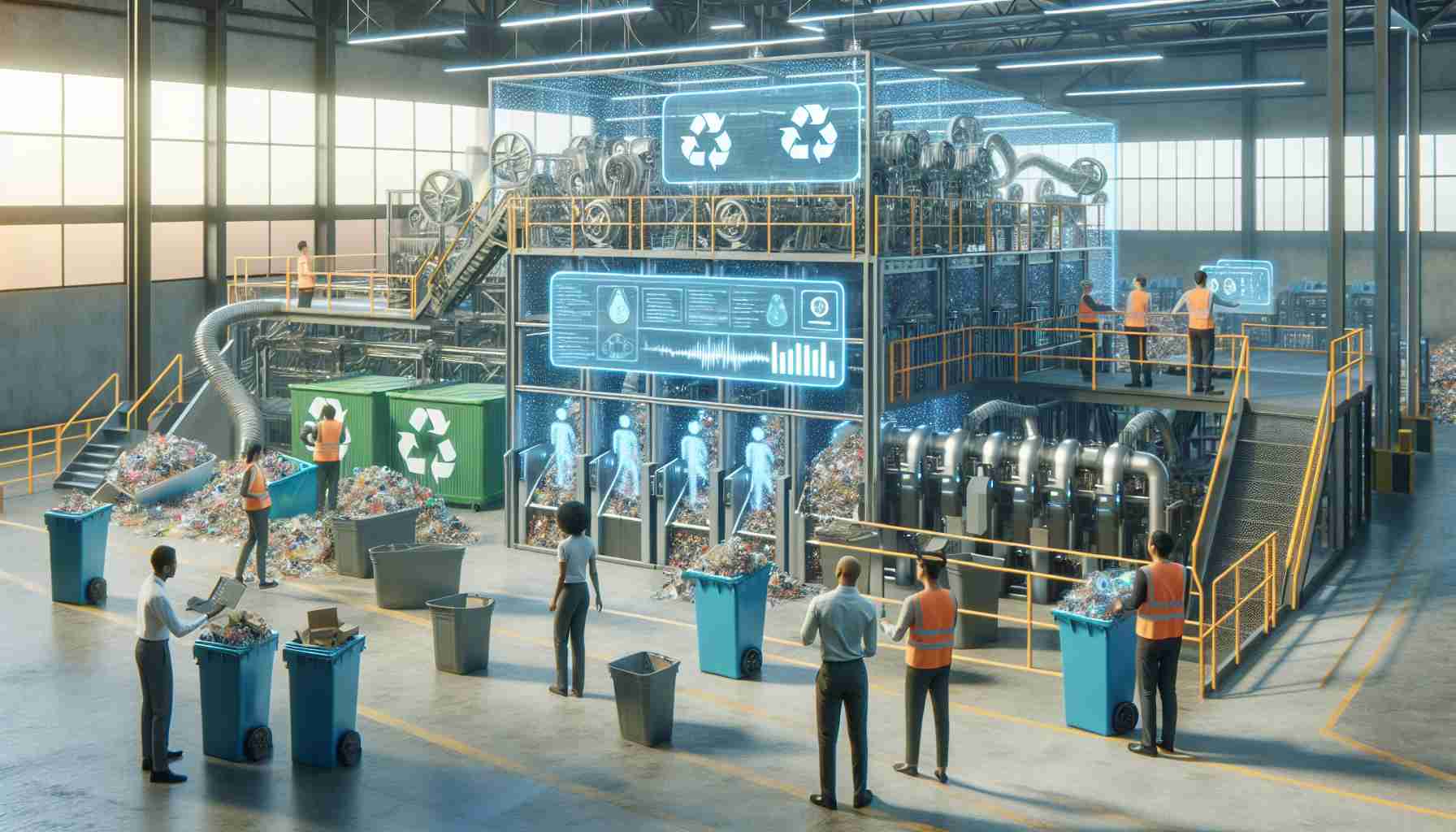Auckland Council is taking a bold step towards tackling the issue of recycling contamination by incorporating artificial intelligence (AI) into its waste management system. Starting next month, recycling trucks will be equipped with AI technology that will help identify incorrect items in the recycling bins and pinpoint those who repeatedly make the same mistake.
Since the implementation of stricter recycling rules two months ago, the rate of contamination in bins has increased from 20 percent to 25 percent, which poses a significant challenge for effective waste management. With this new AI initiative, Auckland Council aims to address the problem head-on and minimize the financial burden it places on ratepayers.
“The trial will involve installing two cameras on two trucks that will feed into software using object recognition,” explained Parul Sood, Auckland Council’s general manager of waste solutions.
The software will initially focus on detecting three of the most common contaminants: plastic bags, rubbish bags, and textiles. However, the potential of AI extends beyond these contaminants, and there could be future adaptations to recognize other items that lead to contamination.
Sood highlighted the importance of identifying those who consistently misuse the recycling bins, particularly individuals who place rubbish bags in the recycling bin. These actions create hurdles during the processing of recyclables and impact the overall efficiency of recycling facilities.
By analyzing data collected through AI technology, Auckland Council will be able to narrow down the GPS coordinates of contamination to an approximate area consisting of 10 houses. This valuable information will then be utilized by bin inspectors or members of the community engagement team to take appropriate follow-up actions in an effort to educate residents and promote correct recycling practices.
Contamination currently costs Aucklanders approximately $3 million every year. This sum could be better used in other areas if recycling contamination is significantly reduced. The introduction of AI technology in recycling trucks signifies a proactive approach by Auckland Council in endeavoring to not only mitigate contamination issues but also minimize the financial burden on ratepayers.
In addition to embracing AI technology, Auckland Council is also considering other measures to reduce costs, such as changing the frequency of rubbish collection from weekly to fortnightly. These changes demonstrate a commitment to finding innovative and sustainable ways to manage waste in the city.
FAQ:
1. What is recycling contamination?
Recycling contamination refers to the incorrect and non-recyclable items being placed in recycling bins, which then negatively impact the recycling process.
2. How will AI be used in Auckland’s recycling trucks?
AI technology will be integrated into recycling trucks to identify incorrect items in the recycling bins. Cameras will capture the contents of the bins, and object recognition software will analyze the data to detect common contaminants.
3. What are the biggest contaminants in recycling bins?
The biggest contaminants that will initially be targeted by the AI technology are plastic bags, rubbish bags, and textiles. However, the system can be adapted to identify other contaminants as well.
4. How will AI technology help reduce recycling contamination?
By accurately identifying the areas where contamination is most prevalent, Auckland Council will be able to educate residents and take appropriate actions to address the issue, leading to reduced recycling contamination.
Sources:
Newshub: [link](https://www.newshub.co.nz/home/new-zealand/2022/02/auckland-recycling-contamination-shambles-costing-ratepayers-m-revealed.html)
Auckland Council’s implementation of artificial intelligence (AI) technology in its waste management system is a significant step towards combating recycling contamination. The increasing rate of contamination in recycling bins, which has risen from 20 percent to 25 percent since the introduction of stricter recycling rules two months ago, poses a challenge for effective waste management. The integration of AI technology aims to address this issue and reduce the financial burden it places on ratepayers.
The AI system will be installed in recycling trucks, equipped with cameras that will capture the contents of recycling bins. Object recognition software will then analyze the data to identify incorrect items, initially focusing on the most common contaminants such as plastic bags, rubbish bags, and textiles. However, there is potential for future adaptations to recognize additional contaminants that contribute to contamination. This technology will not only help in identifying contaminants but will also track individuals who repeatedly make the same mistakes.
The importance of pinpointing those who consistently misuse recycling bins, particularly individuals who place rubbish bags in the recycling bin, is emphasized. These actions hinder the processing of recyclables and impact the overall efficiency of recycling facilities. By utilizing data collected through AI technology, Auckland Council will be able to identify the GPS coordinates of contamination, narrowing it down to an approximate area consisting of 10 houses. Bin inspectors or members of the community engagement team can then take appropriate follow-up actions, educating residents and promoting correct recycling practices.
Currently, contamination costs Aucklanders around $3 million annually. By significantly reducing recycling contamination through the application of AI technology, this financial burden can be minimized. This proactive approach taken by Auckland Council not only aims to mitigate contamination issues but also demonstrates a commitment to utilizing ratepayer funds more effectively.
Auckland Council is also exploring other measures to reduce costs, including the potential change of rubbish collection frequency from weekly to fortnightly. These initiatives reflect a dedication to finding innovative and sustainable waste management solutions in the city.
By incorporating AI technology and actively addressing recycling contamination issues, Auckland Council strives to enhance the efficiency of waste management processes and promote a cleaner and more environmentally friendly city.
Sources:
Newshub

